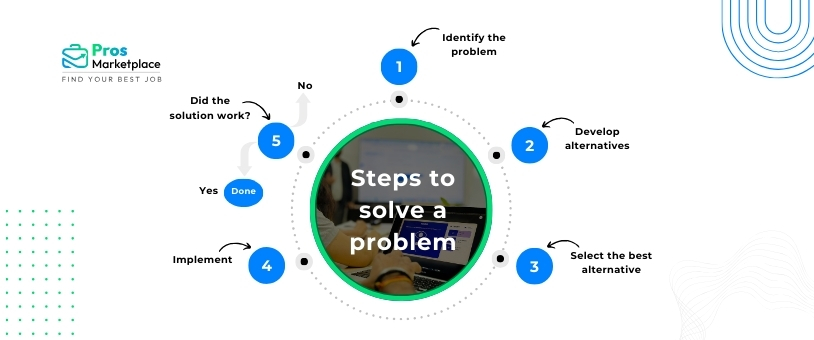With the rise of remote work culture, more individuals are embracing the flexibility and freedom that comes with working from home or any location of their choice. However, transitioning to remote work requires a unique set of skills and strategies to thrive in this new environment.
In this blog post, we’ll provide you with practical tips, insights, and best practices for becoming a successful remote employee. Whether you’re new to remote work or looking to enhance your productivity and effectiveness in a remote setting, this guide is designed to equip you with the knowledge and tools you need to succeed.
From setting up your remote workspace to mastering time management techniques, communicating effectively with your team, and maintaining work-life balance, we’ll cover all aspects of remote work to ensure you can maximize your potential and achieve your professional goals.
So, whether you’re a freelancer, a digital nomad, or a remote worker for a company, let’s embark on this journey together and unlock the secrets of How To Be A Successful Remote Employee.
10 Skills to Become a Successful Remote Employee
In today’s increasingly digital world, the ability to thrive as a successful remote employee has become a valuable skill set.
In this section, we’ll explore the essential skills you need to cultivate to excel in a remote work environment. From effective communication and time management to adaptability and self-discipline, mastering these skills is key to becoming a successful remote employee. Let’s dive in and uncover the ten skills that will empower you to thrive in your remote career.
1. Time management
Mastering time management as a remote worker involves a multi-faceted approach.
This includes creating a detailed schedule that allocates time for specific tasks and projects, taking into account your peak productivity hours and any external commitments. Utilizing productivity techniques such as the Eisenhower Matrix or time blocking can help you prioritize tasks effectively and allocate your time wisely.
Additionally, implementing tools like time-tracking software or productivity apps can provide valuable insights into how you spend your time and identify areas for improvement.
2. Communication skills
Effective communication in a remote work setting goes beyond simply conveying information—it requires clarity, empathy, and adaptability.
Remote workers must be proficient in written communication, ensuring their messages are concise, articulate, and easily understood. Active listening skills are also essential, enabling remote workers to understand others’ perspectives and respond appropriately. Furthermore, adapting your communication style to different audiences and mediums, whether it’s email, instant messaging, or video conferencing, is crucial for effective collaboration and relationship-building.
3. Self-discipline
Maintaining self-discipline as a remote worker entails developing habits and routines that support productivity and focus. This includes establishing a dedicated workspace that is free from distractions and conducive to concentration.
Setting clear boundaries between work and personal life, such as defining working hours and taking regular breaks, helps prevent burnout and maintain overall well-being. Additionally, holding yourself accountable for meeting deadlines and goals, whether through self-imposed targets or accountability systems, fosters a sense of responsibility and ownership over your work.
4. Adaptability
Remote work environments are inherently dynamic, requiring remote workers to be adaptable and resilient in the face of change. This involves embracing uncertainty and being open to new challenges and opportunities. Developing a growth mindset, which emphasizes learning and development, enables remote workers to navigate unfamiliar situations with confidence and creativity.
Furthermore, being proactive in seeking out new skills or knowledge, whether through online courses, professional development opportunities, or networking, enhances your adaptability and versatility as a remote worker.
5. Organization
Effective organization is essential for remote workers to manage their workload efficiently and maintain productivity. This includes establishing systems and processes for managing tasks, deadlines, and priorities, such as using task management tools or project management software.
Maintaining a clutter-free workspace, both physically and digitally, reduces distractions and enhances focus. Regularly reviewing and updating your organizational systems ensures they remain effective as your workload and responsibilities evolve over time.
6. Tech proficiency
Remote work relies heavily on technology, so remote workers must be proficient in using various tools and platforms to perform their jobs effectively.
This includes communication tools such as email, instant messaging, and video conferencing software, as well as project management tools like Trello, Asana, or Slack. Familiarity with cloud storage solutions, collaboration platforms, and remote access tools enables remote workers to collaborate seamlessly with colleagues and access resources from anywhere.
Additionally, staying abreast of emerging technologies and trends in remote work technology ensures you remain competitive and adaptable in a rapidly changing landscape.

7. Proactive problem-solving
Remote work often presents unique challenges that require remote workers to be proactive in identifying and addressing issues as they arise. This involves taking the initiative to troubleshoot technical issues, resolve conflicts, or overcome obstacles independently or with the support of your team.
Effective problem-solving also entails seeking out resources, information, or training to develop solutions and prevent similar issues from recurring in the future. By approaching challenges with a proactive mindset, remote workers can maintain momentum and productivity in their work.
8. Collaboration
Collaboration is essential for remote teams to work effectively together and achieve shared goals. This involves not only communicating and sharing information but also actively participating in brainstorming sessions, providing feedback, and contributing ideas to collaborative projects.
Building trust and rapport with colleagues through regular communication, mutual respect, and recognition of each other’s contributions fosters a collaborative culture where teamwork thrives.
Additionally, leveraging collaboration tools and platforms, such as shared documents or virtual whiteboards, enhances remote collaboration and facilitates seamless teamwork across distributed teams.
9. Goal-setting
Setting clear, measurable, and achievable goals is essential for remote workers to stay focused, motivated, and aligned with organizational objectives. This involves defining specific objectives or outcomes, breaking them down into smaller, actionable tasks, and establishing deadlines or milestones for completion.
Regularly reviewing and revising your goals allows you to track your progress, celebrate achievements, and adjust your priorities as needed to stay on course. Additionally, sharing your goals with colleagues or supervisors fosters accountability and encourages collaboration and support in achieving them.
10. Work-life balance
Maintaining a healthy work-life balance is crucial for remote workers to prevent burnout, maintain well-being, and sustain long-term productivity. This involves setting boundaries between work and personal life, such as establishing designated working hours and creating physical or mental separation between your workspace and living space. Prioritizing self-care activities, hobbies, and social connections outside of work helps you recharge and maintain overall wellness, ensuring you can perform at your best both personally and professionally.
Additionally, practicing mindfulness techniques or stress management strategies can help remote workers cope with the unique challenges and pressures of remote work, promoting resilience and well-being in the long term.
Additional Skills to be a Successful Remote Worker:
In addition to the fundamental skills required for success as a remote worker, several other key competencies can further enhance your effectiveness and productivity in a remote work environment. In this section, we’ll explore a range of additional skills that remote workers should prioritize developing to excel in their roles. From emotional intelligence and critical thinking to adaptability and resilience, mastering these skills will not only help you navigate the challenges of remote work but also position you for long-term success in your career. Let’s dive into the essential skills that every remote worker should work on honing to thrive in the ever-evolving world of remote work.
- Emotional intelligence
- Critical thinking
- Problem-solving
- Decision-making
- Stress management
- Conflict resolution
- Creativity
- Resilience
- Networking
- Continuous learning
Conclusion
Developing and honing a diverse set of skills is essential for success as a remote worker in today’s dynamic work environment. From mastering time management and communication to cultivating emotional intelligence and critical thinking, each skill plays a vital role in enhancing productivity, collaboration, and overall effectiveness in a remote work setting. By prioritizing continuous learning and personal development, remote workers can stay ahead of the curve, adapt to changing circumstances, and thrive in their roles.
As the remote work landscape continues to evolve, investing in these essential skills will not only position you for success but also empower you to achieve your full potential as a remote worker. So, whether you’re just starting your remote work journey or looking to enhance your existing skill set, remember that the key to remote work success lies in continuous growth, adaptation, and resilience. Here’s to your success as a remote worker!







